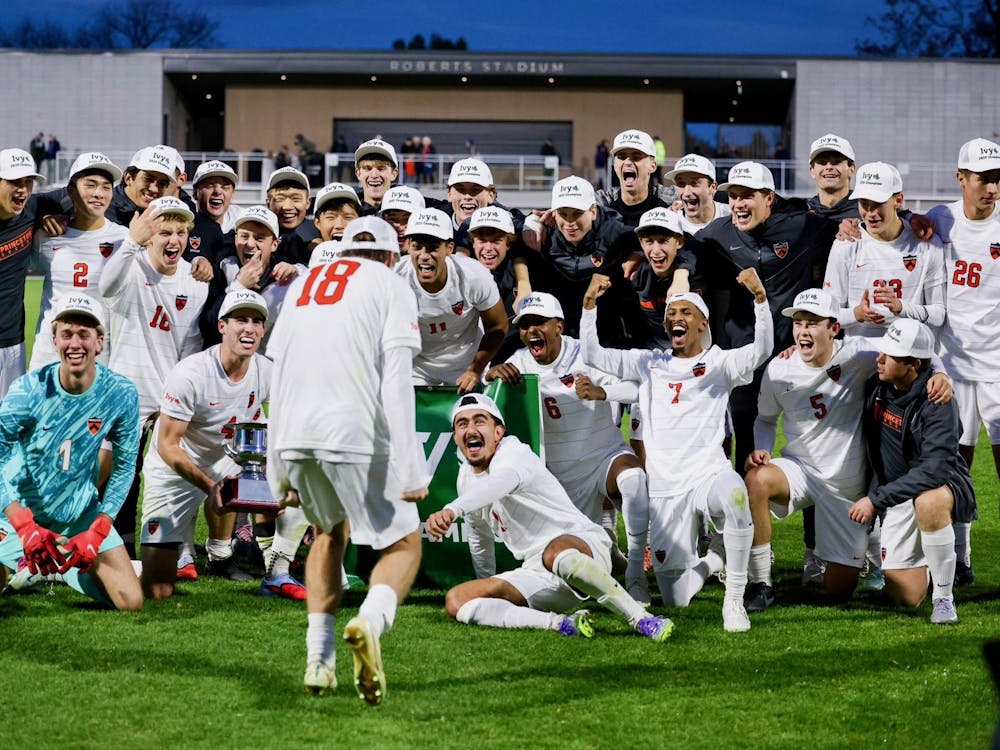But a few years later, in the winter of 1981, it did.
Evans was four years into a career as a professional tennis player when he got a call from an Association of Tennis Professionals (ATP) representative he’d met while working as a locker-room attendant. The man asked Evans, who was playing in a small tournament in Texas at the time, to drop by the ATP’s Houston headquarters when he got a chance.
The ATP, the international governing body for men’s professional tennis, was new at the time and was looking for tour managers — people with tennis know-how who could travel the globe as a liaison between the tour’s management and players. The ATP gave Evans the job but not much else in the way of instruction.
“I had about four days of training [as a tour manager],” Evans said. “And on the fifth day, they gave me an air ticket, which was about as thick as a phonebook, and said, ‘I’ll see you in four months.’ ”
The work was tough. The ATP had little idea of what the role of the tour manager should be, so Evans had to make up much of his job as he did it. The job ultimately resulted in a lot of traveling — up to 40 weeks a year — but Evans said he enjoyed every minute of it. Most of all, Evans said he enjoyed being involved in professional tennis, even if he wasn’t on the court.
Now retired from the ATP, Evans is a well-known personality in the tennis world. During his 25-year career with the ATP, he served as a tour manager, a player representative to the Men’s Tennis Council and a vice president of player services — jobs that allowed him to witness firsthand the rapid evolution of one of the world’s most popular sports.
That evolution began in 1984, when tennis made its first appearance in the Olympics. The Olympics helped raise the international profile of a sport that had until then been dominated by English-speaking countries, especially the United States. The newfound international interest in the sport eventually translated into a more culturally and linguistically diverse group of players, making Evans’ job a lot harder.
“The locker room has become much more diverse,” Evans said. “For me, someone who doesn’t really have command of a second language, that certainly made the job more challenging.”
In addition to the new cultural barriers that he encountered on a daily basis, Evans noticed that the attitudes and resources of the players were changing, as tennis morphed into a multi-billion-dollar industry, and the top tennis stars began to reel in fatter and fatter paychecks. As a result, the players acquired entourages of coaches, agents, physical trainers and massage therapists and raised their expectations of the ATP and Evans.
“The more we did for the players, the more they came to expect it as the norm,” Evans said. “When I first started, the players appreciated any help we gave them because they weren’t used to support like that.”
Evans said that technology has also changed the game of tennis in two important ways. First, it has transformed the way tennis is played. Larger racket heads have allowed players to use more extreme grips and hit the balls harder and with more spin than ever before, a development about which Evans said he has mixed feelings.
“It is a much more powerful game [today],” Evans said, “but you have probably also seen some of the finesse of the sport disappear.”

Technology has also impacted the game in a second, more disturbing way. Internet gambling, Evans explained, is now one of the biggest threats to professional tennis. Last year, Russian Nikolay Davydenko, the fifth-ranked tennis player in world, was accused of intentionally losing a match to Argentine Martin Arguello, after British gambling website betfair.com noticed several unusually large bets against Davydenko despite Davydenko being the heavy favorite. The ATP investigated the matter but could not find any evidence of wrongdoing on the Russian’s part.
“I think that making sure that the integrity of the sport as it relates to match-fixing is preserved is a more important task than even anti-doping [efforts],” Evans said. “Players [who take steroids], while they’re cheating, at least are cheating in an attempt to win matches; whereas those players [who fix matches] would be losing matches for financial gain.”
But the ATP’s biggest contemporary challenge, Evans noted, is finding a replacement for the organization’s CEO, Etienne de Villiers, who is stepping down in December. Evans, not surprisingly, has been mentioned as a possible replacement for de Villiers. But Evans, who left the ATP in January 2006 after 25 years and more than 500 tournaments, is in no rush to get back into the world of professional tennis.
Instead, the former Princeton tennis star is busy coaching the Neace (Fla.) High School men’s tennis squad and writing columns for tennis-warehouse.com, a popular tennis website.
And, of course, Evans isn’t ready to put away his racket just yet. He now competes on the professional over-50 tennis circuit, in which he said he hopes to be nationally ranked by the end of the year.
“It’s nice after 25 years of worrying about the tennis careers of 500 players to finally get to concentrate on my own tennis game,” Evans said.







